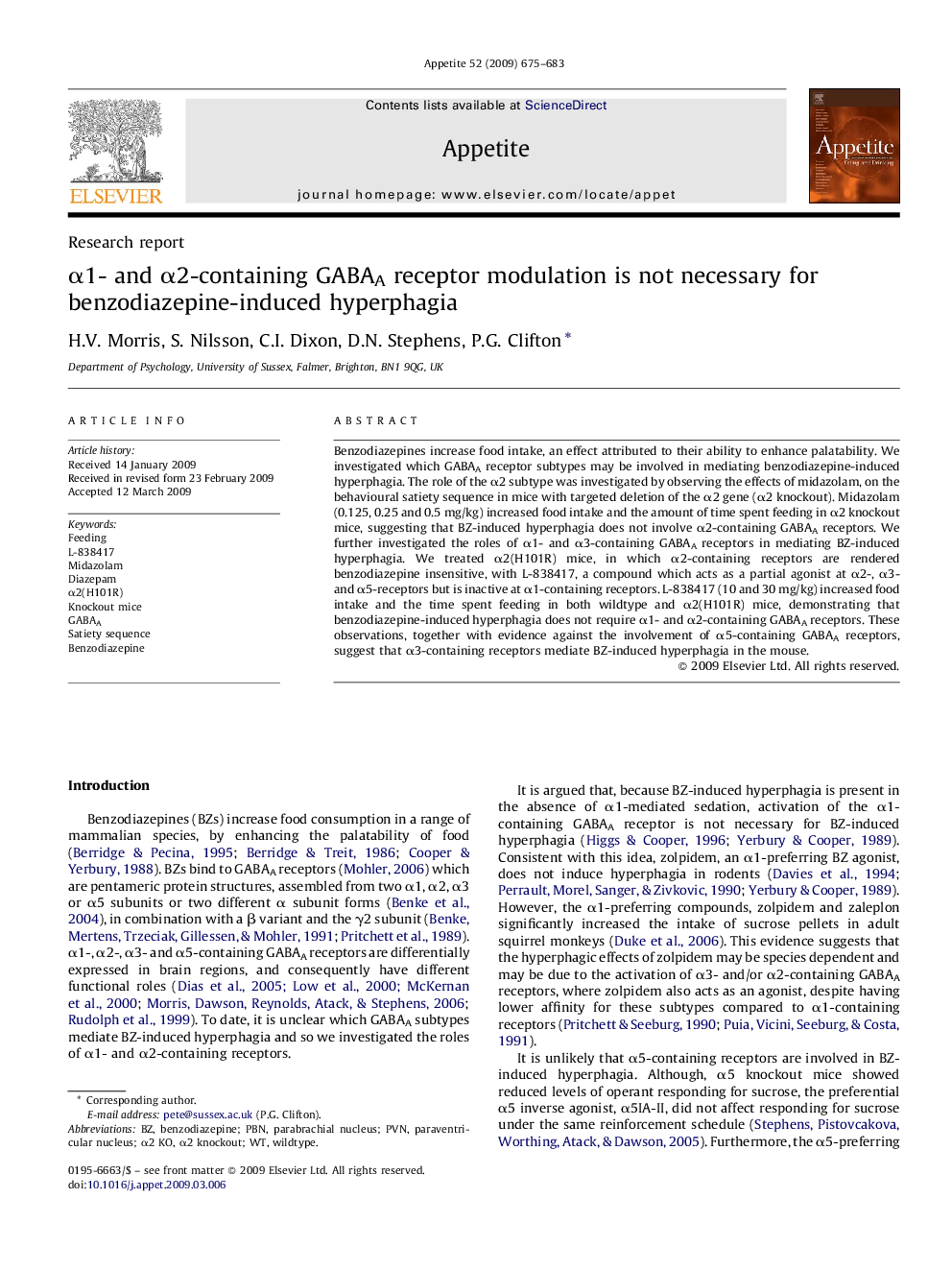| Article ID | Journal | Published Year | Pages | File Type |
|---|---|---|---|---|
| 941023 | Appetite | 2009 | 9 Pages |
Benzodiazepines increase food intake, an effect attributed to their ability to enhance palatability. We investigated which GABAA receptor subtypes may be involved in mediating benzodiazepine-induced hyperphagia. The role of the α2 subtype was investigated by observing the effects of midazolam, on the behavioural satiety sequence in mice with targeted deletion of the α2 gene (α2 knockout). Midazolam (0.125, 0.25 and 0.5 mg/kg) increased food intake and the amount of time spent feeding in α2 knockout mice, suggesting that BZ-induced hyperphagia does not involve α2-containing GABAA receptors. We further investigated the roles of α1- and α3-containing GABAA receptors in mediating BZ-induced hyperphagia. We treated α2(H101R) mice, in which α2-containing receptors are rendered benzodiazepine insensitive, with L-838417, a compound which acts as a partial agonist at α2-, α3- and α5-receptors but is inactive at α1-containing receptors. L-838417 (10 and 30 mg/kg) increased food intake and the time spent feeding in both wildtype and α2(H101R) mice, demonstrating that benzodiazepine-induced hyperphagia does not require α1- and α2-containing GABAA receptors. These observations, together with evidence against the involvement of α5-containing GABAA receptors, suggest that α3-containing receptors mediate BZ-induced hyperphagia in the mouse.
